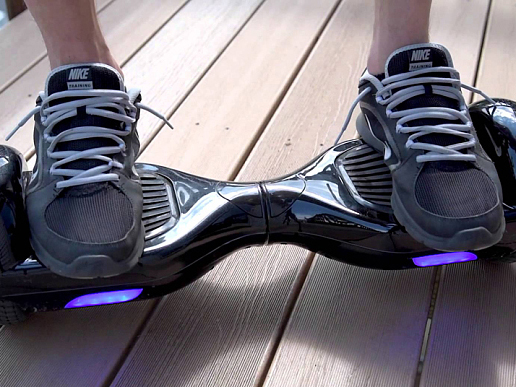
As I returned from an out-of-town trip recently, some of the frantic hustle and bustle of human activity in the concourses of Atlanta's airport suddenly clicked in with particular focus. Fellow travelers hurried by, many with luggage. What caught my attention was how many individuals with luggage were rolling one (or more) bags, rather than physically lifting and carrying them. You can see quite small individuals easily moving quite large pieces of luggage merely by guiding them along by their handles - they roll smoothly on four rollers. What a wonderful thing, I thought to myself. Just think of the improvement in our well-being from the invention of what has come to be known as 'roll-aboard' luggage! A scant two generations ago - fifty years - there was no rolling luggage to make traveling easier. Back then, moving luggage was work that required lifting and carrying. You had to burn some calories in order to move luggage; not so today, thanks to whoever invented luggage with wheels.
If you like, you can walk between the six concourses of Atlanta's airport. As you walk, a recording lets you know that it is a five-minute walk between concourses. But, for your convenience, there is a moving walkway that runs most of the distance between each concourse so you don't even need to walk - you can merely stand and let technology move you. Even better, you can board the super-speedy transit system and be whisked effortlessly to your concourse of choice in a matter of three to four minutes total. These people-move systems exist in many airports now. What a wonderful thing, I thought to myself. Life is good.
Homo sapiens is a remarkably inventive species. We keep inventing things that reduce the amount of physical exertion we must undertake to accomplish tasks, such as moving ourselves and our belongs from one place to another. The latest such invention is the hoverboard, which is, essentially, a miniature Segway. As near as their nearly sixty-year-old guy can tell, hoverboards have gone 'viral' - which means that their popularity is soaring. And why not - you don't need to walk - this small, personal platform on wheels moves you! (A bit of advice from an economist: sell your shares of stock in makers of bicycles, scooters, and skateboards.)
When I first moved to Auburn, Alabama in 1994 there was, for several years, an old man who still tilled his nearby cornfield each spring using a mule-drawn plow that required him to walk behind and direct. Three or four generations ago, this was how almost all row-crop farming was done; today, mule-drawn plowing has all but vanished, replaced by air-conditioned tractors with internet connectivity and GPS. Harvesting crops used to be a supremely labor-intensive activity. For certain crops (such as berries, which do not all ripen at the same time), harvesting is still done by hand. But for many others, harvesting now is done by huge machines that harvest and transport the crop. The large percentage of our population in the United States that used to burn calories exerting the effort it took to accomplish these immense tasks has shrunk to a miniscule percentage. Thank goodness. For recent generations, technology has saved mankind many billions of hours of hard work while sweating under an uncaring hot sun.
And as for actually walking a few hundred yards to school, which many us baby boomers did 'back in the day,' who are you kidding? As the intrepid and irascible Calvin of comic strip fame put it to his mother who wanted him to walk to school, feet aren't for walking, they are for operating car pedals.
My general conclusion from these observations of our changing human condition is that, compared to just two or three generations ago, life really is good. And yet... I can't shake this niggling feeling that the Law of Unintended Consequences has kicked in.
Irrespective of whether caloric intake is going up, down, or staying pretty much constant over time, caloric consumption (the burning of calories) from the ordinary exertions of life has been declining for decades. Oddly enough, this seems to coincide temporally with the increase in obesity in America and elsewhere. I suspect this also coincides with an increase over time in per capita sales of reclining armchairs, the number of hours of television watched per day/week, and so on. As a scientist, I understand the importance of not confusing coincidence/correlation with causation. Yet, in some, perhaps large, measure, surely what has come to be known as the 'obesity epidemic' is a by-product of the technologies that we have embraced voluntarily because they have saved us so much exertion.
As the much-beloved comic strip character Pogo once observed: "we have met the enemy and he is us."
